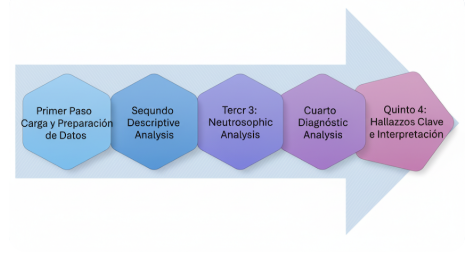Evaluation and classification of complaints from electricity company users in Ecuador using a neutrosophic approach
Main Article Content
Abstract
This paper develops a diagnostic study of the handling of complaints managed by ARCONEL and the Electric Distribution Companies in Ecuador during 2023. The analysis is based on a dataset that classifies complaints into four outcomes: "Applicable" (resolved), "Not Applicable" (rejected), "In Process" (pending), and "Invalidated" (cancelled). Neutrosophic logic is used to interpret the information, which expands the conventional binary framework by integrating degrees of uncertainty. This approach not only distinguishes resolved or unresolved cases, but also incorporates the uncertainty associated with the status of complaints. The results show very high resolution rates (99.98% on average), although with significant variations: companies in the Sierra region perform better than those on the coast, and private companies reduce the risk of dissatisfaction more effectively than public companies. The neutrosophic model also made it possible to identify companies in a "gray zone," characterized by ambiguous indicators—such as percentages close to 90%—that call into question the usefulness of strictly dichotomous classifications. The diagnosis identified recurring bottlenecks, including the frequency of "Not Admitted" complaints and delays in processing "In Process" cases, particularly in the public sector. Based on these findings, strategic guidelines are proposed, including territorial redistribution of resources, standardization of protocols, and differentiated audits to mitigate inefficiencies. In summary, the study demonstrates that neutrosophic logic offers a more nuanced framework for evaluating institutional performance, capturing uncertainty and providing useful information to strengthen regulation and operational management.
Downloads
Article Details

This work is licensed under a Creative Commons Attribution 4.0 International License.

